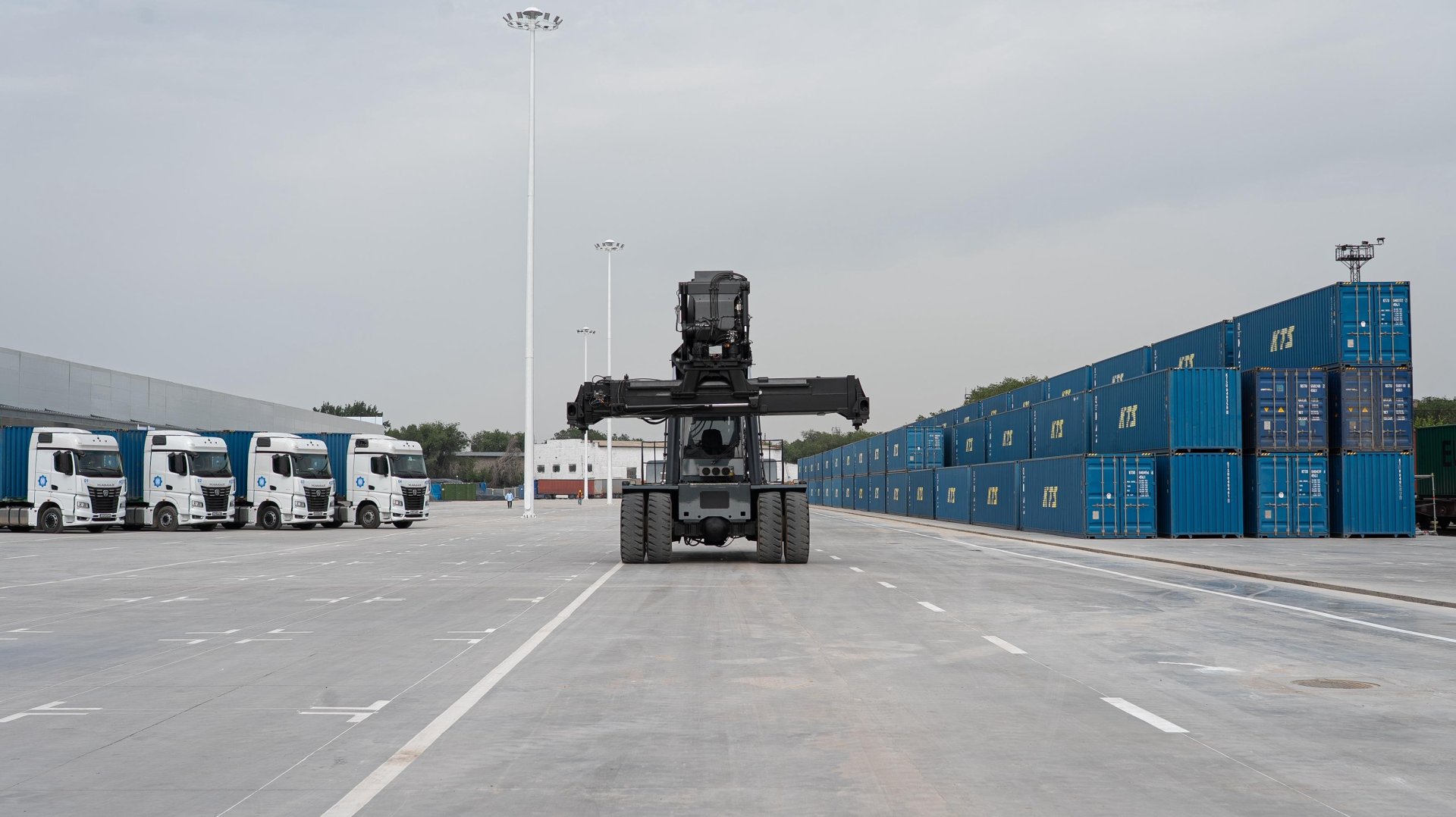BAKU, Azerbaijan, November 21. Rhenus Logistics, a Germany-based international logistics group specializing in multimodal transport and supply chain management, has begun considering several new investment projects across the country following the conversion of its representative office in Baku into a legal entity in 2024. These include a port logistics project, which is currently under evaluation, a source at the Germany-based international logistics group Rhenus Logistics told Trend.
"Although specific details are not being disclosed at this stage, the initiative reflects the Rhenus Group's intention to strengthen multimodal and maritime connectivity in Azerbaijan. The project is currently being analyzed, and further steps will be determined after the review is complete. In addition to individual projects, Rhenus is focused on developing integrated multimodal solutions that efficiently and sustainably connect maritime, rail, and road transport. This includes the modernization of transshipment points, the creation of new depots, and the digital integration of customs, port, and rail processes," the source noted.
Meanwhile, it was noted that Rhenus Logistics works closely with customers, partners, and authorities and invests where there is real demand, with the long-term goal of supporting Azerbaijan's economic development and creating a reliable and sustainable logistics infrastructure along the Trans-Caspian corridor.
"The Trans-Caspian corridor provides strategic diversification and resilience for global supply chains. It offers an alternative route connecting China, Central Asia, and Europe via the Caspian Sea, helping to reduce dependence on northern routes and ensuring more predictable transit times. For many shippers, it is an opportunity to remain independent of geopolitical risks and maintain continuity of transport in changing conditions. Azerbaijan plays a central role as a "bridge" between Asia and Europe. The potential is significant: the country has already proven its ability to establish effective multimodal connections. For example, cargo arriving in Baku can be sent by rail to Georgia and on to the Black Sea or Türkiye in just a few hours, saving significant time compared to northern routes," Rhenus Logistics emphasized.
Moreover, it is noted that this efficiency makes the corridor increasingly attractive for trade diversification and strengthening the logistical resilience of Eurasia.
"However, the route faces infrastructure and operational challenges, such as fragmented infrastructure and persistent bottlenecks. In many places, there is a lack of modern terminals, intermodal hubs, and coordinated cross-border handling, which can lead to inconsistent service quality and increased transit times. Technical obstacles also remain: differences in rail gauge, limited rolling stock, and long distances between major cities complicate operations planning. In addition, differences in national regulations, tariff systems, and administrative procedures continue to slow progress, requiring closer regional coordination. Equally important are the growing expectations of shippers for predictability and transparency throughout the route," the company said.
As Rhenus Logistics points out, ultimately, the main advantages of the Trans-Caspian corridor are connectivity, predictability, and diversification.
"The main task is to turn these strengths into a fully compatible, reliable, and economically competitive logistics route, a goal that Rhenus is pursuing through long-term investment, local cooperation, and technical expertise," the source stressed.







